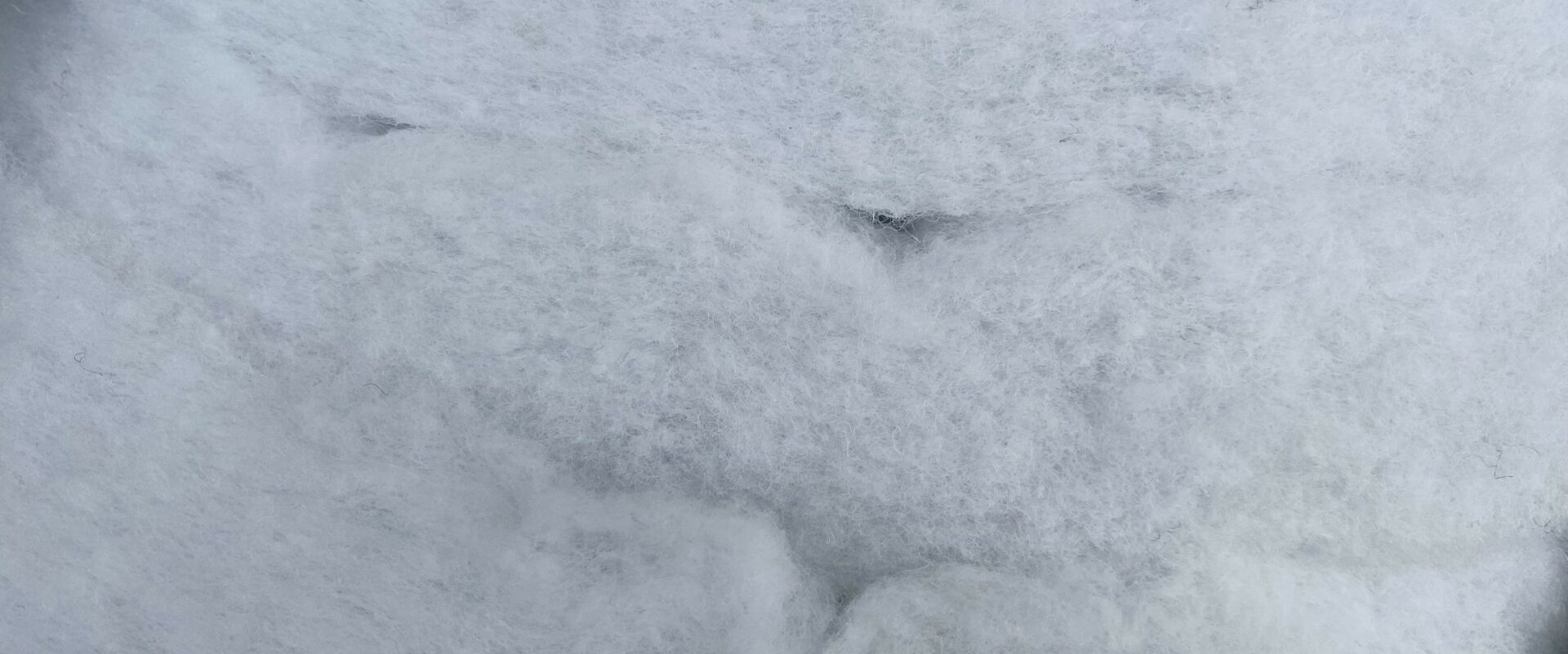Polyester Insulation

Polyester insulation stands out as a versatile, comfortable and eco-friendly insulation material option. Understanding its composition, types, applications and both pros and cons is necessary for anyone considering it for their living or working space.
WHAT IS POLYESTER INSULATION?
Polyester insulation is a hypoallergenic, soft and zero-itch insulation material. It’s made of synthetic polymers which undergo a very specific manufacturing process, often involving extrusion or melt spinning. Through this process, the synthetic polymers are transformed into fine fibres that collectively create the polyester insulation.
Polyester insulation boasts remarkable thermal performance while being environmentally friendly, often incorporating recycled materials.
TYPES OF POLYESTER INSULATION
This insulation comes in various forms, including batts, rolls and loose-fill, each tailored to specific applications. The flexibility in options contributes to its widespread use in diverse scenarios.
Polyester insulation batts
Polyester insulation batts are pre-cut sections of insulation material, designed to fit easily between framing elements in walls, ceilings and floors. These pre-cut dimensions make installation in both new constructions and retrofitting projects a more straightforward process. The batts are known for their flexibility, making it easy to fit into spaces without any hassle.
Polyester insulation loose-fill
Polyester insulation in loose-fill form consists of small, lightweight particles that can be blown or poured into spaces, conforming to the contours and gaps within an area. Although quite messy, this method is ideal for insulating irregular or hard-to-reach spaces, such as attics with obstacles or intricate wall structures. The loose-fill application ensures a complete and even coverage, creating a seamless thermal barrier. It’s a popular choice for retrofitting existing structures, because it can be blown in without making big changes to the building’s architecture. If you ever need to remove it, you’ll need to book in a roof insulation vacuum service, or hire a vacuum to do it yourself (although this is not recommended).
Polyester insulation rolls
Polyester insulation rolls are a continuous length of insulation material, allowing for easier installation over large areas. When installed underneath the floorboards, the polyester insulation rolls are fixed in place by stapling to the sides of the timber floor joists. In the ceiling, the rolls are installed either between the ceiling joists, or otherwise perpendicular to the joists.

Polyester Insulation Applications: Where Can it Be Installed?
Polyester insulation is a versatile solution, offering effective insulation for different areas within a house. It’s commonly installed in ceilings, walls and underfloors.
Polyester ceiling insulation
By using polyester insulation for a ceiling insulation installation, a protective layer is formed that minimises heat loss during colder seasons and restricts heat gain in warmer weather. This significantly helps to maintain a balanced temperature within the living or working space.
Polyester wall insulation
By installing polyester insulation within walls there is a thermal barrier which improves the overall energy efficiency of the building. This is important in both new constructions and retrofitting projects.
Polyester underfloor insulation
Polyester underfloor insulation is designed to combat heat loss in spaces beneath the floor. By choosing polyester as the material for an underfloor insulation installation, a barrier is created that minimises the transfer of heat, contributing to energy conservation and reduced energy costs.
Polyester Insulation Pros
Installing polyester in your home or commercial space comes with several advantages including:
- Thermal performance. Insulation made from polyester excels in trapping and retaining heat.
- Environmental friendliness. Polyester often incorporates recycled materials, making it an eco-friendlier insulation choice.
- Hypoallergenic properties. One of the standout features of polyester insulation is that it does not release any odour or chemicals. It’s made of household-friendly materials and contains no breathable fibres. This is a huge plus for allergy-prone individuals and families.
- Ease of installation. Polyester insulation is available in batts, rolls and loose-fill forms, making it user-friendly and versatile to install. A prominent feature is that it’s also incredibly soft and is zero-itch – a favourite among professional insulation installers.
- Moisture resistance. Resisting moisture, polyester insulation can maintain thermal efficiency even in damp conditions. Be aware that this does not mean insulation should be allowed to get wet – if your polyester insulation gets soaked e.g. due to a major roof leak, mould will grow. Contact Amelior Insulation and we’ll be happy to provide you with a quote to organise insulation removal and replacement for you.
- Flammability. Is polyester insulation flammable? Polyester insulation is considered to be fire-resistant – it’s often treated with flame-retardant chemicals during the manufacturing process. Additionally, polyester itself has a high melting point compared to natural fibres, which means it requires more heat to ignite. Fire-resistant insulation is very advantageous in a country like Australia, where bushfires are quite common during the scorching, dry summers.
Polyester Insulation Cons
In it’s performance, polyester insulation doesn’t really have any disadvantages compared to other types of bulk insulation. However most installers agree that it’s not as easy to cut through polyester insulation as e.g. glasswool.

Is Polyester Insulation Good?
Polyester insulation is a zero itch and exceptionally allergy friendly alternative to glasswool insulation brands such as Knauf Earthwool and Bradford Gold. If it is professionally installed and not subjected to damage from water and vermin, the insulation should last as long as your home.
Install Polyester Insulation
If you’re looking for an insulation company in Canberra, Sydney, or the Blue Mountains to install polyester insulation in your existing home, our retrofit insulation installers are ready to assist. Call us on 0450 858 568, or send a text for a convenient call-back time. We look forward to speaking with you and helping you with your insulation needs.
